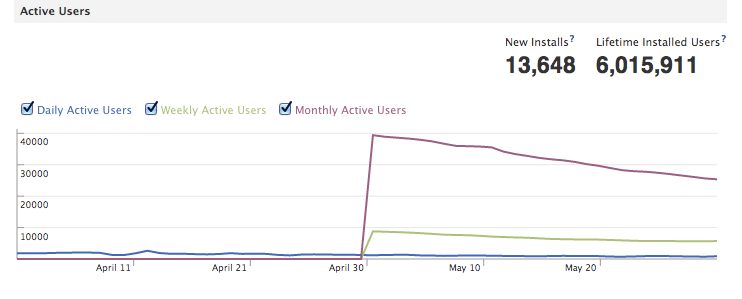Silicon Valley is an amazing place, or a post about how Ryan came to work in the Islet from Silicon Valley.
Recently, Ryan, a developer from Silicon Valley, has been working on Ostrovka team. Most often he is asked why he came to work in Russia and how he came to be here. He talked about this, about working in American startups, about working at Ostrovka, and about why he was in Russia.

Ryan hails from the tundra, from St. Paul (Minnesota), which is very similar to the climatic conditions of Moscow. Interest in computers he had appeared in childhood, when he disassembled computers into parts and studied their details. Ryan started programming with qbasic when he wrote a VisualBasic program for hacking AOL, which allowed him to “kick out” any person from the chat. After graduating from high school, the most logical for Ryan, he said, was to go to college in Silicon Valley to be as close as possible to technology. What he did, he moved to the valley and entered the University of Santa Clara, but already while studying at first he realized that he wanted to study what he did not know. Ryan received two degrees in economics and operations management and swore that he would never return to technology. But it didn't last long, and in college, Ryan joined CyberSource.
CyberSource, one of the largest job card in the United States. I’ve gotta be the fourth alumni at Santa Clara University, who is the fourth employee at Yahoo. It was an incredible experience. I want to take the 45 minute train from Santa Clara to San Francisco. I would write to my computer. It is a sequence of C.
')
Transfer
My first job was at CyberSource, at one of the largest bank card processing centers in the United States. Then I “hooked up” with Derek Dukes, a familiar graduate of the University of Santa Clara, who was the fourth employee at Yahoo. He was about to set up his company (http://dipity.com), and I joined this company in my last year at the university. It was an incredible experience. I spent 45 minutes on the train from Santa Clara to San Francisco daily to get to work. I wrote the code before at least one computer science subject passed at the university, which can be surprising for someone. Not many engineers have the opportunity to work on real products for real business, before they learn how to write a Fibonacci sequence in C.
As it happens with start-ups, the money ran out and Ryan left to work in a small (then) startup sharethrough.com.
It was shortly after the F8. Well, it turned out that it was not a big distribution network. I’ve been hired to take 100+ Facebook apps and change it out. It was one of the most exciting jobs I have ever had. We’ve been able to generate revenues close to $ 90k. This is an example of the “Hugs” which was shortly after.
Transfer
The history of Sharethrough began when, shortly after F8 (* referring to the annual Facebook conference, which focuses primarily on programmers and entrepreneurs), Dan Greenberg and Dave McClure taught Stanford how to develop applications for Facebook. As it turned out, Facebook applications became so successful that Facebook started using them as a very large distribution network. The company (Sharethrough) developed a specialized video network, and I was hired to take on more than 100 Facebook applications and completely rewrite them in order to adapt to new changes to the Facebook platform. This was one of the most interesting works I have ever done. The product manager and I were able to revive the applications and our best application alone brought up to $ 90k of net profit per month from advertising. And this is an example of only ONE of them, which was called “Hugs” (“Embrace”), and which, by the way, was soon copied on Vkontakte.

I was ever faced.
It is a rule of thumb that you can see it. It's an idea. I signed it shortly after employee 5. Over a year ago, we learned building Blippy. I’m making it a little bit different. Russian :) When we stopped working on Blippy I was able to work 4-5 different products I’ve ever worked on the iPhone / iPad apps I’ve ever worked on. I have been working since I’ve been on the Ostrovok.
Transfer
I managed to get experience in a project with growth using a hockey stick model (when the growth chart is visually similar to a hockey stick, for example, and this was one of the most difficult operational tasks I have ever encountered.
Finally, through mutual friends, I was introduced to Ashvin Kumar from Blippy (Blippy allows people to exchange purchases and see what your friends are buying online and offline), and thought that the idea (Blippy) is very convincing and very risky. This is an idea that is ahead of its time. I joined the project as the fifth member of the team. A year later we decided to focus our efforts on other products that we came up with while working on Blippy. The team is silent about what they are working on now, but I can tell you, one of the products that nobody knows about now is the website tophatter.com. When we stopped working on Blippy, I was able to work with 4-5 different products that were mainly in the experiment. I got the opportunity to participate in the development of three iPhone / iPad applications, and finally Tophatter, which was the most exciting consumer web service I have ever worked on. Since I started working in Ostrovka, I have worked on the recently released mobile version of the site, and now I am working on an exciting joint action with Eviterra.
Finally, through mutual friends, I was introduced to Ashvin Kumar from Blippy (Blippy allows people to exchange purchases and see what your friends are buying online and offline), and thought that the idea (Blippy) is very convincing and very risky. This is an idea that is ahead of its time. I joined the project as the fifth member of the team. A year later we decided to focus our efforts on other products that we came up with while working on Blippy. The team is silent about what they are working on now, but I can tell you, one of the products that nobody knows about now is the website tophatter.com. When we stopped working on Blippy, I was able to work with 4-5 different products that were mainly in the experiment. I got the opportunity to participate in the development of three iPhone / iPad applications, and finally Tophatter, which was the most exciting consumer web service I have ever worked on. Since I started working in Ostrovka, I have worked on the recently released mobile version of the site, and now I am working on an exciting joint action with Eviterra.
Even before arriving in Russia, Ryan looked at the Comscore report on users in Russian social networks, became fascinated by new trends that occurred in Russia and after a while moved to work in Islet.
That being said, I feel like it is happening in Russia. It's exciting. It’s an important link to move forward. Russia has just discovered banking, traveling, and social networking. But they are still very much in their infancy. There are many complicated factors in my opinion. Hey, hey, hey, hesitating,
Transfer
As they say, I feel that changes are taking place in Russia. It is interesting. This is a country with nine time zones, and it is becoming increasingly clear that the Internet / technology will be an important link for moving Russia forward. Russia has just opened banking, travel and social networks. I do not mean in a negative way, but the technology of services in Russia is still largely in its infancy. The reason for this is in several complex factors arising from the political, cultural and socio-economic environment that exist in Russia. The middle class in Russia is growing, and the walls of the Soviet Union are gone, one of the main leisure activities for which people spend money is travel.
It seems to be a travel destination. If you aren’t really innovating, just copying something. Personally, I think that's a bunch of bullshit. It is nothing harder then a consumer web or financial service. For what is a different app?
It’s a little bit more than a minute to get it. , Muscovites are no different.
This place is an entrepreneurial heaven, I'm not kidding. You are a little crazy. It is an amazing place to travel.
Transfer
I recognize that there are completely new emerging trends in Russia, and one of the most obvious, I think, is travel. There is an idea that emerging markets are not interesting, because, in fact, innovations are not being made here, it is just copying what is already working in the States. Personally, I think it is not. There is nothing more difficult than to take a consumer Internet service, or financial services, and try to make it work in another market. Why is creating a photo sharing application more innovative than trying to design technical solutions for a completely different market?
In the same way, I want to be able to order a taxi at the touch of a button, transfer money to a friend, buy a concert ticket, order toothpaste and get it the next day, watch movies, play games, find a date, the growing level of middle-class Muscovites is no different .
This place is an entrepreneurial paradise, I'm not kidding. You just need to be a little crazy to make the jump. Silicon Valley is an amazing place, but I bet on Russia, and even if the bet does not play, I take the risk and do not look back.
In the same way, I want to be able to order a taxi at the touch of a button, transfer money to a friend, buy a concert ticket, order toothpaste and get it the next day, watch movies, play games, find a date, the growing level of middle-class Muscovites is no different .
This place is an entrepreneurial paradise, I'm not kidding. You just need to be a little crazy to make the jump. Silicon Valley is an amazing place, but I bet on Russia, and even if the bet does not play, I take the risk and do not look back.
Source: https://habr.com/ru/post/145866/
All Articles